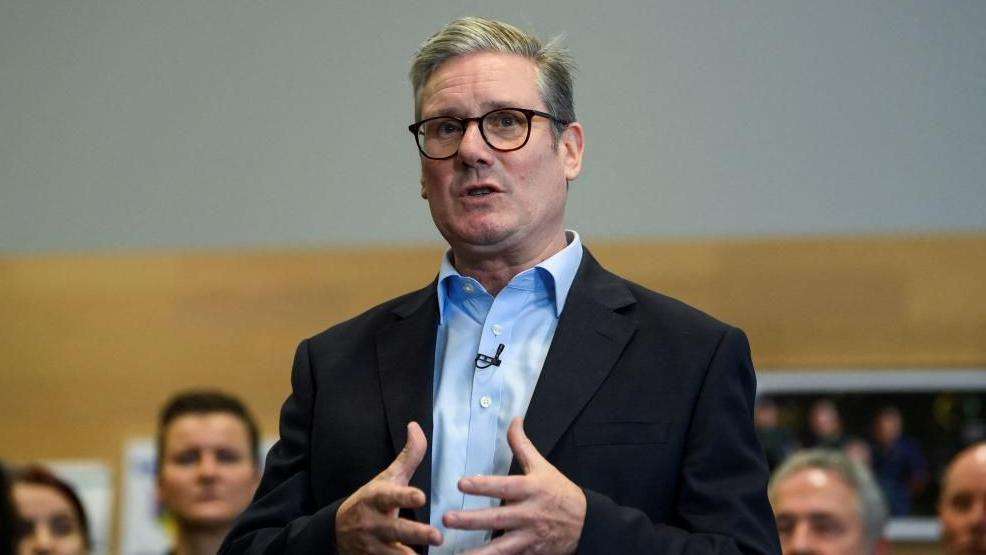According to Education Secretary Bridget Phillipson, the upcoming Labour budget promises no hits to employees’ take-home pay.
Ahead of the Wednesday, October 30 announcement, speculation has grown over Labour’s strategy to balance tax increases with spending initiatives, as the government seeks to generate £40 billion through a combination of tax rises and strategic cuts.
Despite anticipated hikes in employers’ national insurance contributions and potential increases to VAT on certain items, Phillipson confirmed the party’s stance on preserving workers’ net income. “Coming out of this budget, working people will not see higher taxes in the payslips that they receive,” she emphasized, noting the economic pressures households currently face.
Labour’s key manifesto promise to shield “working people” from tax increases has been a central theme in its campaign. Phillipson highlighted that “we would not increase VAT, national insurance, or income tax on working people,” and that the new measures align with this commitment by targeting businesses rather than individuals.
New Labour Budget Signals Major Economic Shift
Chancellor Rachel Reeves is expected to deliver Labour’s first budget in over 15 years with sweeping economic adjustments including raising employer taxes, redefining debt rules, and expanding long-term infrastructure spending.
Reeves remarked on the historic scale of the budget, drawing comparisons to previous transformative Labour budgets. “In 1945, we rebuilt after the war; in 1964, we rebuilt with the ‘white heat of technology’; and in 1997, we rebuilt our public services. We need to do all of that now,” she said.
The budget’s largest revenue source is projected to come from an increase of 1 or 2 percentage points in employers’ national insurance contributions. This adjustment also includes a reduction in the threshold at which businesses start paying these contributions, potentially widening the tax base and securing additional revenue for public spending.
The new tax structure also aims to tackle wealth accumulation through measures such as raising VAT on private school fees, increasing inheritance tax on land, and boosting capital gains tax for assets like shares. These changes, Labour argues, are aimed at those with greater wealth while upholding the pledge to protect regular workers’ earnings from tax hikes.
Labour Faces Challenges Over “Working People” Definition
As the budget takes shape, questions continue to arise about Labour’s definition of “working people.” Opposition voices, including members within Labour, have called for clarity on whether certain taxes will indirectly affect workers despite reassurances.
Prime Minister Keir Starmer recently attempted to clarify, stating that “working people” refers to those earning income from employment rather than investments in shares or property. However, a Labour spokesperson later noted that small-scale shareholders would still be considered part of this group, adding nuance to the debate.

Former Labour minister Peter Mandelson raised concerns that some public institutions, such as universities, could face unintended repercussions from the tax plan.
Mandelson, who is currently a candidate for the position of Chancellor at Oxford University, noted that universities may struggle to absorb increased national insurance rates unless they receive reimbursements similar to those proposed for other public sectors.
“Universities will be forced to reduce their contribution to lecturers’ and teachers’ pensions with calamitous consequences for future benefits,” he warned, urging the government to provide universities with the same relief anticipated for schools and hospitals.
Meanwhile, Conservative leaders criticized Labour’s approach, accusing the party of reversing its prior tax promises.
Shadow Technology Secretary Andrew Griffith remarked, “You’re about to see a government come to office on the promise of no increase in taxation, no increase in borrowing – they’re about to break all of those promises,” highlighting the opposition’s skepticism over Labour’s fiscal approach.
As such, Labour’s commitment to safeguarding ordinary citizens’ income from tax increases will be a major test of its governing philosophy and could set the stage for future policy directions.
READ ALSO: UN Security Council To Convene Following Israel’s Strikes Against Iran



















